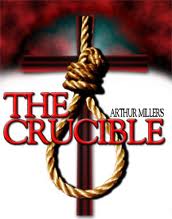In a country where I lived and worked
for several years one often heard the phrase “Khudo khohad,”
which equates to the Arabic phrase “Insh Allah.” We could
translate this phrase along the lines of “If it is God's will.”
In the culture where I lived, this phrase was frequently used to
absolve oneself of responsibility for planning or for the outcome of
one's actions. After all, the individual is not really in control, so
what does it matter what one does? If God wants it to happen it will.
If he doesn't, it won't. End of story.
This attitude permeated the culture in
many ways, resulting in a fatalistic worldview. Why should one plan
or work toward a better tomorrow when the future lies beyond one's
control anyway? Why feel accountable for one's actions when we know
that all things are really in God's control and not our own. If
something happened, it must be God's will. If it doesn't happen, it
obviously wasn't. Other factors come into play in this particular
cultural context which only sharpen the fatalism, because in many
ways people really do lack control over their world. One man had
worked hard to build a couple rooms on his house for his family, only
to have the whole property taken from him by the government overnight
and bulldozed to make way for a prestigious government project.
Although he received some minor compensation, all his efforts to
plan, work and save for his family were reduced to naught without any
opportunity for him to counteract it. In such a world fatalism seems
to be a realistic worldview, but it isn't a very helpful one.
This mindset is quite contrary to the
Western worldview in which I was raised. American culture teaches us
that we can change our lives, that we are in control of our
destinies, that we can make a difference in the world. This mentality
runs through many Protestant churches as well. But does it sync with
the teachings of Scripture? What do we do with a passage like James
4:13-17.
Instead you ought to say: “If it is
the Lord's will, we will live and do this or that.”
This sounds a lot like saying “Khudo
khohad” to me. Should we as Christians in fact be fatalistic? Does
the sovereignty of God render our activity pointless?
I have wrestled with the question a lot
in my life, at times actively, at other times passively. I come from
a Reformed theological background, which emphasizes the sovereignty
of God. But I look at the world and find that God exercises this
sovereignty in baffling ways, allowing things to occur that must
surely grieve God's heart. Other Christians claim to see God's
sovereign hand in natural disasters and other tragedies, claiming
that they are God's punishment for certain sins. This mentality stems
from an Old Testament worldview, but isn't entirely incompatible with
a strong view of God's sovereignty. However, I cannot accept that God
acts in this way. It strikes me as far to capricious and arbitrary
(especially since these claims always seem to relate to certain types
of sin. I've never heard anyone say that hurricane Katrina was the
punishment for the greed and consumerism of Americans, for example.)
If we adopt too strong a view of
sovereignty, we become passive chess pieces in some divine game. We
may think we have a say in the course of the game, but we don't
really. Or if we allow for some individual freedom but insist on God
having a clear and decisive plan for each person's life, we can spend
our energy worrying constantly whether we are in or out of God's
will. I grew up with this mindset. I understood that my goal in life
was to fulfill God's plan for it. I understood that this plan would
be clear to me if I simply prayed and sought wisdom. But experience
has shown that sometimes God's will is rather unclear. In fact, God's
plan seems to me more like a broad directive than a specific agenda
for each day, week, month or year. Before I worried that if I stepped
outside of God's will, if I moved off that clearly defined path he
had laid out for me, I would basically be trashing my life. Now I see
God's will more like the markers that illuminate the edge of the
highway. Yes, there are areas I don't want to go, but there is a
broad swath of possibilities that are fully within “God's will.”
And don't even get me going on the idea that God has a “perfect
someone” for each of us to marry.
I keep running up against this question
of God's sovereignty and the extent to which what I do really
matters. I don't think Scripture teaches us to our actions and
decisions have no real meaning. But can we change the course of
events, or are all things so completely determined that our choices
have no real significance? I would not want to live in such a world,
nor would I consider such a God particularly worthy of worship. I
don't think God wants us to be mere automatons.
Interestingly, I found a new way to
think of this after watching the movie MiB3. (I must say that I never
imagined having my theology influenced by Men in Black!) In that
movie, agents K and J meet Griffin, a fifth-dimensional being who
sees multiple timelines simultaneously. To Griffin, all futures are
possible until the point that an event occurs which then eliminates
some of them, while opening up new alternatives. Because Griffin
exists multi-dimensionally, none of the outcomes is fixed or
determined, but he can see all of them as real because he can see
what would happen should any particular event occur. What if God is
in some manner like Griffin, only more so? What if God's sovereignty
doesn't mean that an exact course is already fixed for each of us,
but that God knows the ultimate outcome (the full restoration and
redemption of the creation) and in God's multi-dimensional existence
can simultaneously see all possible paths to that endpoint, without
dictating that any particular one of them should occur?
I find that I need room in my theology
for my actions and decisions to count, so that my life has meaning
beyond simply preparing me for some heavenly future. I don't believe
that God created me and placed me in this world simply so I could
learn some lessons in preparation for eternity. I believe God calls
me, and all people, to be co-creators, or at least co-workers in the
process of bringing the kingdom to come on earth as it is in heaven.
If one emphasizes too strongly God's sovereignty one can eliminate
this element of human cooperation and render human life as a fully
pre-determined set of events without real significance. One can also
end up with a God who is distant and unmoved by the events of this
world. Otherwise, surely God would act to rectify the injustices and
sufferings of God's creation. If we believe that God does act, but
through God's people without specifically compelling them to act,
then we must allow room for flexibility in the working out of the
divine will.
In a blog such as this I can only begin
to touch on this deep topic. I have on my shelf a book I first read
many years ago in seminary by Clark Pinnock and others entitled The
Openness of God. This book caught my attention the first time I
read it and it may be time for a second read. I know that it was not
well received by many evangelical theologians because it directly
challenges some long-held theological positions, but the questions
the authors raise and the suggestions they make offer an alternative
way to understand this tension between divine sovereignty and human
action. If only Pinnock had had MiB3 to watch!
I have no nice conclusion to this post,
because the issue remains open for me. I do not reject God's
sovereignty, but I need to understand it in a way that allows for
real, meaningful human action and freedom. I don't want to be reduced
to saying “If God wills” and absolving myself from responsibility
or action. On the other hand, I do want to recognize that my actions
and plans still rest within the larger framework of God's actions in
the world. That provides, as it were, a safety net, because I can
have confidence that God remains in control even when I make the
mistakes that I inevitably will.








